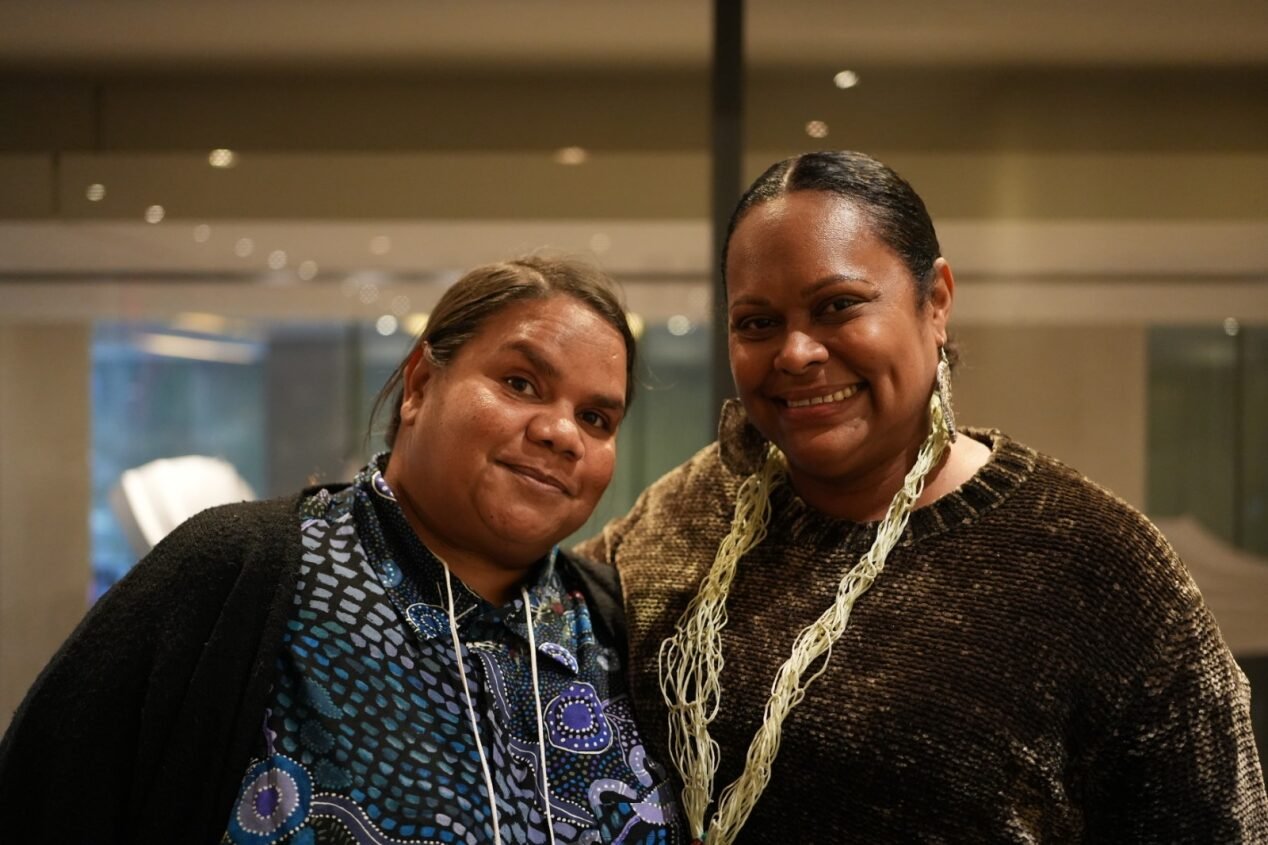The importance of Aboriginal and Torres Strait Islander languages and supporting communities
Aboriginal and Torres Strait Islander languages are integral to communities, cultures and homelands. Languages are important to the strength and success of communities.
This partnership firmly believes in and advocates for the critical role language and culture plays in the ongoing and future health and wellbeing of Aboriginal and Torres Strait Islander peoples.
The LPP seeks to establish a true partnership approach with truth-telling, equal representation and shared decision-making fundamental to the National Agreement for Closing the Gap.
The expertise of the Aboriginal and Torres Strait Islander representatives ensures that the lived experiences of communities is brought in, understood and at the heart of learning and language policy development and decision-making.
Languages Policy Partnership
“We see these no-good things happened to us, to our country, our culture, and our language. Some people now have little language, and some still have much. We have come together to make change, to make our languages strong again, to make our people and culture strong again - to stand proud with our languages”. - Aboriginal and Torres Strait Islander representations, Languages Policy Partnership.
The Languages Policy Partnership (LPP) was created under the National Agreement for Closing the Gap to develop a joined-up approach to progressing and achieving Target 16. Target 16 is focused on seeing a sustained increase in number and strength of Aboriginal and Torres Strait Islander languages being spoken by 2031.
The LPP includes leaders from the Coalition of Peaks, independent Aboriginal and Torres Strait Islander language and community experts, and senior-level representatives from federal, state and territory governments.
The partnership is also tied together by the Languages Policy Partnership Agreement to Implement. The Agreement sets out the purpose, objectives, scope, governance arrangements, and the roles and responsibilities of the LPP.
Since the National Agreement on Closing the Gap was signed, the Australian Government has committed $20.8 million from 2022 - 2028 for the partnership and its supporting operational and delivery functions. As per the National Agreement on Closing the Gap, the LPP has commissioned an evaluation of its model and work. The evaluation has commenced and is due to be completed in February 2026.
LPP members together at their second meeting in June 2023.
Target 16
The LPP welcomes the introduction of Target 16 to Closing the Gap. This target is strengths-based and is dedicated to ensuring that ‘Aboriginal and Torres Strait Islander cultures and languages are strong, supported and flourishing’; and more specifically, that ‘by 2031, there is a sustained increase in number and strength of Aboriginal and Torres Strait Islander languages being spoken.’
The LPP is working to develop a national and coordinated approach to achieving Target 16. This includes working in partnership, centring the community-controlled sector, changing how governments work, and sharing the right data and information to make important decisions. The LPP will also work according to annual work plans and a three-year strategic plan.
Have your say on the LPP’s national priority areas!
Led by the LPP’s Aboriginal and Torres Strait Islander representatives and informed by Aboriginal and Torres Strait Islander community members, the partnership has identified seven national priorities to achieve Target 16 under Closing the Gap.
To seek input from Aboriginal and Torres Strait Islander people on the priorities, the LPP has created an online survey. To date, over 97% of respondents have expressed their support for the national priorities identified by the LPP. You can view the results in the Community Response Paper to the LPP Priorities.
We invite Aboriginal and Torres Strait Islander people to continue to provide your thoughts on the priorities and the ongoing input into the priorities and work of the LPP. You can do that by filling in the survey here, or you can provide your thoughts on sound recording or video, by recording and emailing it to LanguagesPolicyPartnership@firstlanguages.org.au
Have your say!
The National Languages Policy Partnership has identified seven national priority areas to achieve Target 16 of Closing the Gap, captured on the LPP Priorities on a Page. We invite Aboriginal and Torres Strait Islander people to provide their thoughts on the priority areas. To do so, please visit the survey here. You may also provide your thoughts on video, by recording and emailing the video to LanguagesPolicyPartnership@firstlanguages.org.au.
LPP members at the first LPP meeting, nipaluna/ Hobart 21-22 March 2023
Meetings of the Languages Policy Partnership
The LPP meets 4 times a year. The 2025 meetings are:
4th and 5th March, Canberra
21st and 22nd May, Darwin
10th and 11th September, Sydney
19th November, online
Read the meeting summary reports here:
For more information, subscribe to our newsletter, follow us on social media or read our updates.
LPP membership
The Languages Policy Partnership has members representing all Australian, state and territory Governments and Aboriginal and Torres Strait Islander members.
The LPP is co-chaired by the CEO of First Languages Australia as the national peak organisation for Aboriginal and Torres Strait Islander languages, and the Deputy Secretary of the Department of Infrastructure, Transport, Regional Development, Communication and the Arts.
Secretariat:
First Languages Australia is the industry peak body leading this work. We share the partnership’s secretariat work with the Commonwealth Government’s Office for the Arts who supports these activities.
Coalition of Peaks organisation representatives
Karina Lester, Mobile Languages Unit
Vicki Couzens, Victorian Aboriginal Corporation for Languages
Daisy Allan, Tasmanian Aboriginal Centre
Beau Williams, First Languages Australia
Karen Paterson, First Nations Media Association
Independent Aboriginal and Torres Strait Islander experts:
Patsy Ngalu Bedford (Bunuba)
Daryn McKenny (Gamilaraay and Wiradjuri)
Leitha Assan (Badhulaig)
Samantha Armstrong (Pertame)
Gulwanyang Moran (Birrbay and Dhanggati)
Government members:
Stephen Arnott, Department of Infrastructure, Transport, Regional Development, Communication, Sport and the Arts, Commonwealth Government
Elle Blacklock, Aboriginal Languages Trust, New South Wales Government
Shelagh Magadza, Department of Local Government, Sport and Cultural Industries, Western Australian Government
Kathy Parton, Department of Women, Aboriginal and Torres Strait Islander Partnerships and Multiculturalism, Queensland Government
Mellissa Gray, Department of Premier and Cabinet, Tasmanian Government
Dorrelle Anderson, Department of Housing, Local Government and Community Development, Northern Territory Government
Bronwyn Milera, Department of Education, South Australian Government
Brendan Moyle, Office of Aboriginal and Torres Strait Islander Affairs, Australian Capital Territory Government
Angela Singh, Department of Education, Victorian Government.
For enquiries about the Languages Policy Partnership contact our secretariat team at LPP@firstlanguages.org.au




